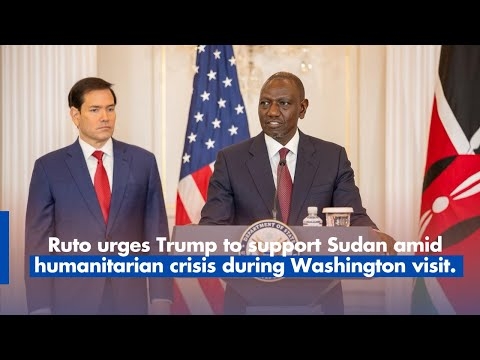An expert has linked the spike in suicide cases among the Maa community to the devastating impacts of climate change.
"For once in the Maa community, we have had an increase in suicide cases. This has never been experienced before bearing in mind that they are the bravest warriors fighting lions," Dr Susan Gitau, a psychologist, said.
She was speaking on Friday last week at the just-concluded Africa Climate Week during a side event dubbed 'The nexus between Mental Health and Climate related Disasters’.
She said a lot of time people assume life is without stress.
"It has never been and it will never be. It is how you cope with it and how you will make your own community," she said.
Gitau said Africans have always used seasons to predict weather patterns but this has changed due to climate change.
"In Africa, Kenya in particular, many communities like the Maasai believe more in livestock, when they lose livestock, they lose their lifeline and everything," she said.
Early this year, the National Drought and Management Authority (NDMA) announced that 4.2 million livestock were lost due to drought.
This shattered the livelihoods of pastoralist communities.
Dr Gitau, who is also the CEO Elewa Ulevi, said loss of livelihoods during the recent drought hit communities hard.
The drought was due to the rising levels of carbon dioxide that warmed up the earth's atmosphere and rising sea levels, melting the snow and ice leading to fires, floods and droughts across Africa.
Gitau said due to the devastating disasters, people are losing everything and nobody is concerned about their mental health.
"Who is talking to these people? Who is giving them homes? Who is giving them psychological support?” she posed.
During the side event, experts said lack of data on how climate change was impacting on health remains a major setback.
"We are focusing on the physical part by giving them what they have lost but forget their mental health and therefore when we experience these things, chances of one developing serious mental health problems are very high," she said.
Gitau said communities who lost their fortunes are currently reeling with traumatic stress disorders and depression.
"The use of substances like alcohol, marijuana and miraa is also on the rise due to post-traumatic stress of losing everything," she said.
Senior research scientist at International Centre for Humanitarian Affairs Kenya Red Cross Society Zachary Misiani said people in Africa have experienced one disaster after the other.
"There is no time for recovery from these vulnerable people in our society. As a humanitarian organisation, we need a forecast and clear understanding that will speak to the needs of these vulnerable communities," Misiani said.
Misiani said climate-related hazards usually cause a lot of damage and destruction on livestock and agriculture.
"The droughts we had in East Africa affected 36.4 million of people- Ethiopia had 24.1 million, 7.8 million in Somalia and 4.5 million in Kenya," Misiani said.
Meteorological Society of Kenya climate expert and researcher Dr Richard Muita said early warning systems must be enhanced to help the community to understand their weather patterns and respond accordingly.
"Early warning systems helped us to understand the weather around Narok county. We customised an early warning system for heavy rains and flooding in the area that helped to reduce floods.”
UN Secretary General António Guterres, who took part in the Africa Climate Summit, has been insisting that there is a need for universal coverage by early warning systems.
Hivos East Africa Global programme manager Maimuna Kabatesi decried that indigenous people and local communities were being excluded from the decision-making table in favour of the private sector from Global North.
Kabatesi said the just-concluded Africa Climate Summit was not people centred.
She said communities understand the struggles they go through as they are being confronted by the impacts of climate change.
Kabatesi said the adaptation finance should go to the communities and that very little has resources have gone to the community.
She faulted the move where the private sector continues to pollute the environment before providing little resources to clear their mess.
World Wide Fund for Nature-Kenya Coastal Kenya programme manager Dr Asma Awadh cited mangrove restoration efforts saying it has helped emancipate communities from poverty.

















